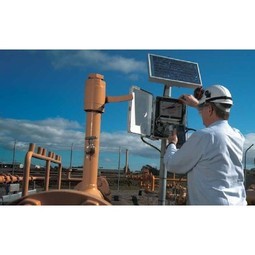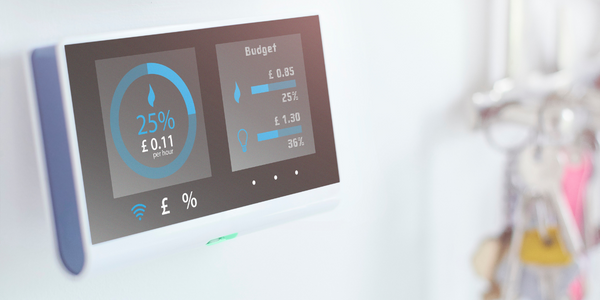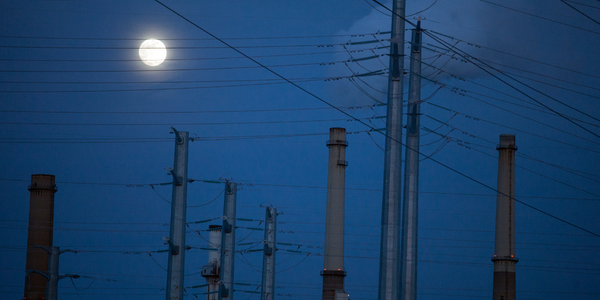公司规模
Mid-size Company
地区
- Europe
国家
- Finland
产品
- IBM Maximo Asset Management
- IBM Maximo Spatial Asset Management
- IBM WebSphere Enterprise Service Bus
技术栈
- Esri ArcGIS
- Oracle Primavera Enterprise Project Portfolio Management
- SAP Work Manager for Maximo
实施规模
- Enterprise-wide Deployment
影响指标
- Cost Savings
- Customer Satisfaction
- Productivity Improvements
技术
- 分析与建模 - 大数据分析
- 应用基础设施与中间件 - API 集成与管理
- 网络与连接 - 网络管理和分析软件
适用行业
- 公用事业
适用功能
- 物流运输
- 维护
用例
- 预测性维护
- 实时定位系统 (RTLS)
- 根因分析与诊断
服务
- 云规划/设计/实施服务
- 系统集成
关于客户
Fingrid 是芬兰电力传输网的管理公司,是该国最重要的能源基础设施。该公司拥有 300 名员工,管理着 14,000 公里的输电线路和 100 多个变电站,2013 年的收入为 5.672 亿欧元(6.03 亿美元)。芬兰是一个地广人稀的国家,经常遭遇严寒天气。该国北部位于北极圈内,这意味着冬季日照时间非常短。因此,一旦停电,不仅会带来不便,还可能带来公共安全问题。
挑战
Fingrid 是芬兰高压输电网络的管理公司,该公司希望找到更智能的方式来管理其 14,000 公里输电网络,以提高可靠性和服务水平、控制成本并支持更好的投资决策。该公司需要实时更全面地了解其资产和网络状态。挑战在于在发生故障时快速分析整个电力系统。过去,需要花费数天甚至数周的时间才能获得故障根本原因分析所需的所有信息。
解决方案
Fingrid 选择 IBM 作为物联网 (IoT) 解决方案的主要系统集成商,该解决方案将 IBM Maximo Asset Management 与其他七个关键任务系统相结合,包括用于制图的 Esri ArcGIS、Oracle Primavera Enterprise Project Portfolio Management 和用于 Maximo 的 SAP Work Manager 作为移动用户界面。IBM WebSphere Enterprise Service Bus 充当所有这些系统的集成平台,帮助 Fingrid 高效地将来自业务各个部分的信息集中到一个中央 Maximo 存储库中。通过部署 IBM Maximo Spatial Asset Management,该公司可以精确定位其每项资产的位置,并使用热图等可视化功能动态分析其状态。这有助于公司识别模式和趋势,快速发现故障,并优化工单和维护计划和管理。
运营影响
数量效益

Case Study missing?
Start adding your own!
Register with your work email and create a new case study profile for your business.
相关案例.

Case Study
IoT Solutions for Smart City | Internet of Things Case Study
There were several challenges faced: It is challenging to build an appliance that can withstand a wide range of voltage fluctuations from as low at 90v to as high as 320v. Since the device would be installed in remote locations, its resilience was of paramount importance. The device would have to deal with poor network coverage and have the ability to store and re-transmit data if networks were not available, which is often the case in rural India. The device could store up to 30 days of data.

Case Study
Automation of the Oguz-Gabala-Baku water pipeline, Azerbaijan
The Oguz-Gabala-Baku water pipeline project dates back to plans from the 1970’s. Baku’s growth was historically driven by the booming oil industry and required the import of drinking water from outside of the city. Before the construction of the pipeline, some 60 percent of the city’s households received water for only a few hours daily. After completion of the project, 75 percent of the two million Baku residents are now served around the clock with potable water, based on World Health Organization (WHO) standards. The 262-kilometer pipeline requires no pumping station, but uses the altitude differences between the Caucasian mountains and the capital to supply 432,000 m³/d to the Ceyranbatan water reservoir. To the people of Baku, the pipeline is “the most important project not only in 2010, but of the last 20 years.”

Case Study
GPRS Mobile Network for Smart Metering
Around the world, the electricity supply industry is turning to ‘smart’ meters to lower costs, reduce emissions and improve the management of customer supplies. Smart meters collect detailed consumption information and using this feedback consumers can better understand their energy usage which in turn enables them to modify their consumption to save money and help to cut carbon emissions. A smart meter can be defined in many ways, but generally includes an element of two-way communication between the household meter and the utility provider to efficiently collect detailed energy usage data. Some implementations include consumer feedback beyond the energy bill to include online web data, SMS text messages or an information display in consumers’ premises. Providing a cost-effective, reliable communications mechanism is one of the most challenging aspects of a smart meter implementation. In New Zealand, the utilities have embraced smart metering and designed cost effective ways for it to be implemented. The New Zealand government has encouraged such a move to smart metering by ensuring the energy legislation is consistent with the delivery of benefits to the consumer while allowing innovation in this area. On the ground, AMS is a leader in the deployment of smart metering and associated services. Several of New Zealand’s energy retailers were looking for smart metering services for their residential and small business customers which will eventually account for over 500,000 meters when the multi-year national deployment program is concluded. To respond to these requirements, AMS needed to put together a solution that included data communications between each meter and the central data collection point and the solution proposed by Vodafone satisfied that requirement.

Case Study
NB-IoT connected smart meters to improve gas metering in Shenzhen
Shenzhen Gas has a large fleet of existing gas meters, which are installed in a variety of hard to reach locations, such as indoors and underground, meaning that existing communications networks have struggled to maintain connectivity with all meters. The meter success rate is low, data transmissions are so far unstable and power consumption is too high. Against this background, Shenzhen Gas, China Telecom, Huawei, and Goldcard have jointly trialed NB-IoT gas meters to try and solve some of the challenges that the industry faces with today’s smart gas meters.

Case Study
OneWireless Enabled Performance Guarantee Test
Tata Power's power generation equipment OEMs (M/s BHEL) is required to provide all of the instrumentation and measurement devices for conducting performance guarantee and performance evaluation tests. M/s BHEL faced a number of specific challenges in conducting PG tests: employing high-accuracy digital communications for instrumentation, shortening setup and dismantling time, reducing hardware required, making portable instrument setup, avoiding temporary cabling work and the material waste costs

Case Study
British Gas Modernizes its Operations with Innovative Smart Metering Deployment
The UK government has mandated that smart meters are rolled out as standard across Great Britain by end of 2020, and this roll-out is estimated to create £14 billion in net benefits to the UK in consumer energy savings and lower energy generation demand, according to the Oxford Economics report, “The Value of Smart Metering to Great Britain.” While smart-metering systems have been deployed in many countries, the roll-out in Great Britain is unique because it is led by energy retailers, who have responsibility for the Electricity and Gas meters. The decision to have a retailer-led roll out was made by DECC (Department of Energy and Climate Change) to improve customer experience and drive consumer benefits. It has also led to some unique system-level requirements to support the unique local regulatory model.



